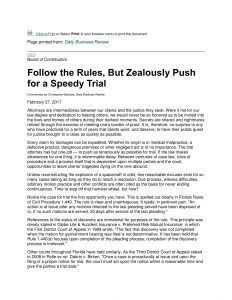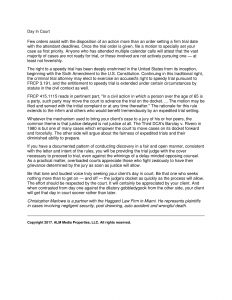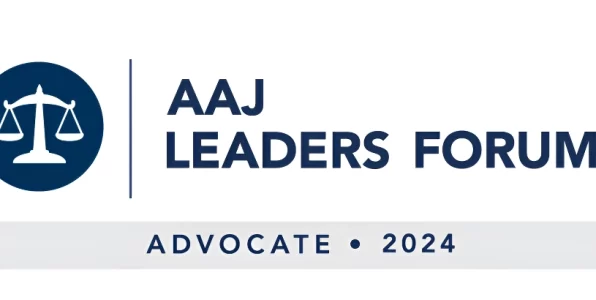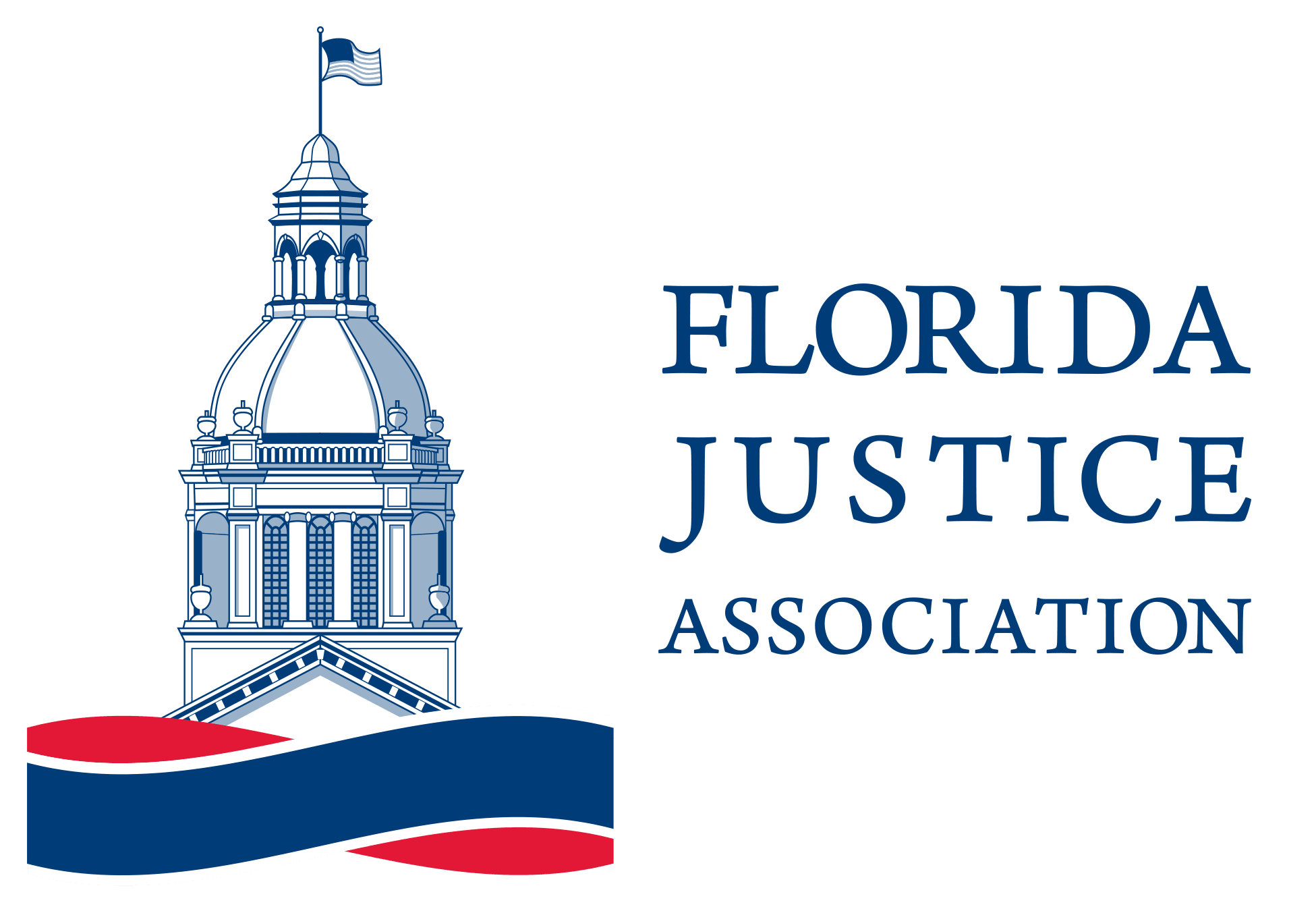Today, Daily Business Review published the Haggard Law Firm attorney Christopher Marlowe‘s article highlighting the importance of pushing for a speedy trial.

Here is the body of the article by Marlowe:
Attorneys are intermediaries between our clients and the justice they seek. Were it not for our law degree and dedication to helping others, we would never be so honored as to be invited into the lives and homes of others during their darkest moments. Secrets are shared and nightmares relived through the exercise of meeting one’s burden of proof. It is, therefore, no surprise to any who have practiced for a term of years that clients want, and deserve, to have their public quest for justice brought to a close as quickly as possible.
Every claim for damages can be expedited. Whether its origin is in medical malpractice, a defective product, dangerous premises or other negligent act is of no importance. The trial attorney has but one job — to push as tenaciously as possible for trial. If the law makes allowances for one thing, it is interminable delay. Between centuries of case law, rules of procedure and a process itself that is dependent upon multiple parties and the court, opportunities to leave clients’ tragedies dying on the vine abound.
Unless reconstructing the explosion of a spacecraft in orbit, few reasonable excuses exist for so many cases taking as long as they do to reach a resolution. Due process, witness difficulties, arbitrary motion practice and other conflicts are often cited as the basis for never ending continuances. Time to step off that hamster wheel, but how?
Notice the case for trial the first opportunity you have. This is spelled out clearly in Florida Rules of Civil Procedure 1.440. The rule is clear and unambiguous. It reads, in pertinent part: “An action is at issue after any motions directed to the last pleading served have been disposed of or, if no such motions are served, 20 days after service of the last pleading.”
References to the status of discovery are immaterial for purposes of the rule. This principle was clearly stated in Globe Life & Accident Insurance v. Preferred Risk Mutual Insurance, in which the First District Court of Appeal in 1989 wrote, “The fact that discovery was not completed when the motion for garnishment hearing was filed is not determinative. It has been held that Rule 1.440(a) focuses upon completion of the pleading process; completion of the discovery process is irrelevant.”
Other courts throughout Florida have held similarly. As the Third District Court of Appeal stated in 2008 in Rolle ex rel. Dabrio v. Birken, “Once a case is procedurally at issue and upon the filing of a proper notice for trial, the court must act upon the notice within a reasonable time and give the parties a trial date.”
Day In Court
Few orders assist with the disposition of an action more than an order setting a firm trial date with the attendant deadlines. Once the trial order is given, file a motion to specially set your case as first priority. Anyone who has attended multiple calendar calls will attest that the vast majority of cases are not ready for trial, or those involved are not actively pursuing one — at least not feverishly.
The right to a speedy trial has been deeply enshrined in the United States from its inception, beginning with the Sixth Amendment to the U.S. Constitution. Continuing in this traditional right, the criminal trial attorney may elect to exercise an accused’s right to speedy trial pursuant to FRCP 3.191, and the entitlement to speedy trial is extended under certain circumstances by statute in the civil context as well.
FRCP 415.1115 reads in pertinent part, “In a civil action in which a person over the age of 65 is a party, such party may move the court to advance the trial on the docket. … The motion may be filed and served with the initial complaint or at any time thereafter.” The rationale for this rule extends to the infirm and others who would benefit tremendously by an expedited trial setting.
Whatever the mechanism used to bring your client’s case to a jury of his or her peers, the common theme is that justice delayed is not justice at all. The Third DCA’s Barclay v. Rivero in 1980 is but one of many cases which empower the court to move cases on its docket forward and forcefully. The other side will argue about the fairness of expedited trials and their diminished ability to prepare.
If you have a documented pattern of conducting discovery in a fair and open manner, consistent with the letter and intent of the rules, you will be providing the trial judge with the cover necessary to proceed to trial, even against the whinings of a delay-minded opposing counsel. As a practical matter, overloaded courts appreciate those who fight zealously to have their grievance determined by the jury as soon as justice will allow.
Be that lone and loudest voice truly seeking your client’s day in court. Be that one who seeks nothing more than to get on — and off — the judge’s docket as quickly as the process will allow. The effort should be respected by the court. It will certainly be appreciated by your client. And when contrasted from day one against the dilatory gobbledygook from the other side, your client will get that day in court sooner rather than later.











